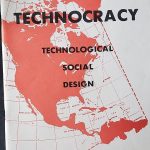9/18/2009
When is health care reform not healthcare reform? When it comes on the backs of middle class Americans who already can’t afford it while providing a huge benefit to the very industry that caused the healthcare problem to begin with.
I have been reading along on the healthcare debate, mostly not liking it, and today I read in the Washington Post that there is now concern on Capital Hill that healthcare reform will be too expensive for middle class Americans to afford, especially for the many millions of uninsured. I have to ask — are they’re just figuring this out?
As far as I can tell, the current model of healthcare reform touted by the Obama Administration and the Republicans is one in which health insurance is made mandatory. In other words, regardless of ability to pay, everyone in America will be required to purchase private health insurance. There’s going to be some form of assistance for the very poor in the form of tax breaks but even Congress is starting to realize that that won’t be enough. The millions of people who can’t afford insurance are not likely to be able to afford it under Obama’s plan either.
But it gets better. Now, instead of just lacking healthcare, people who can’t afford health insurance will also be regarded as bad people who must be penalized — to the tune of $750-1,000 a year. Believe it or not, for someone making $20,000 a year, $750 to 1,000 is a lot of money.
Nevertheless, as has been pointed out elsewhere, this sum is far less than the cost of actual insurance making it likely that some people will opt simply pay the fine. But think about it. This means that some low income people will end up paying $1,000 a year in federal fines, but they still won’t get any healthcare. Does this not seem almost silly?
Leaving aside the question of scofflaws, I’m wondering if the brainiacs in Washington have thought at all about what this giant diversion of disposable and, in most cases, non-disposable income will do to the larger economy? What won’t we be buying to make sure we have health insurance?
In my case, comparable big ticket items include rent, food, and government taxes. Which one won’t I pay? For more affluent people on middle incomes, perhaps they’d like to forgo consumer purchases, fuel, car, or for that matter, any form of outside social life such as entertainment or restaurant meals. Face it, this bill will affect consumer spending and that is going to affect the economy, which last I checked, was still not breathing on its own.
More to the point, assuming that other fixed costs do not go down, it seems flat out impossible that people who couldn’t afford health insurance yesterday because they don’t make enough money are going to be able to magically afford it tomorrow — even at reduced rates.
But here’s a plan from Republican Senator Charles Grassley to fix this little glitch for us. This is it, I kid you not: give a bunch of taxpayer money to the insurance companies to encourage them to lower rates enough so that more middle Americans can afford them. In that case, the government would give them our money and then we would also give them our money and when they have all the money, they’ll give us some healthcare, as they see fit. Now there’s a plan.
I will say no more. This is a stupid health care plan and a completely outrageous giveaway to the insurance companies and it isn’t going to do one little thing to reduce costs. Healthcare costs are high because healthcare is a necessary service and therefore the health industry can charge anything they want for it — they know that somehow, people will at least try to pay for it.
The current healthcare reform plan is clearly a win for the industry and a loss for us. Hence it is not health care reform at all but yet another redistribution of assets — from the people to a group of grossly rich corporations.
I can’t believe the talking heads can even debate this seriously. We should stop acting confused and tell them what they can do with this load of crap. Otherwise, we’re going to get what we deserve for our whiffleheadedness and it will be a big pile of exactly what we already know we don’t want.




